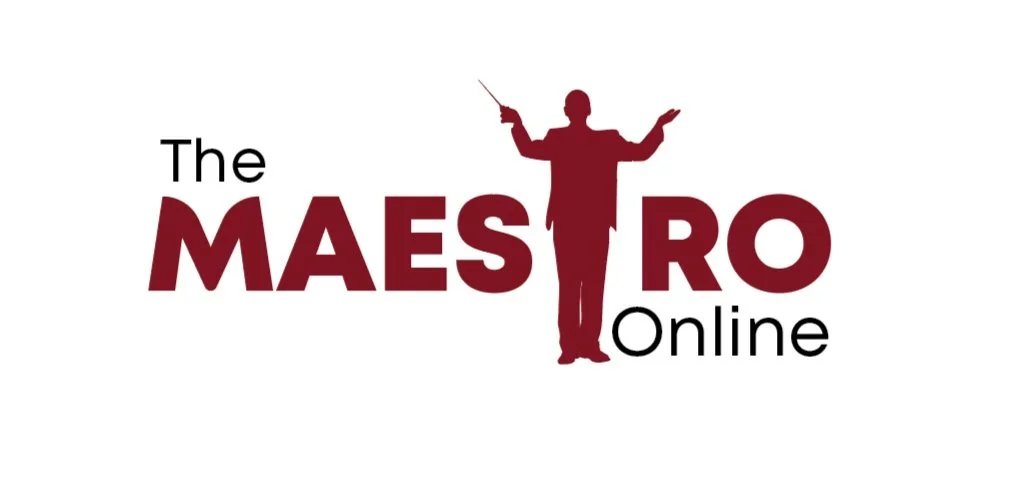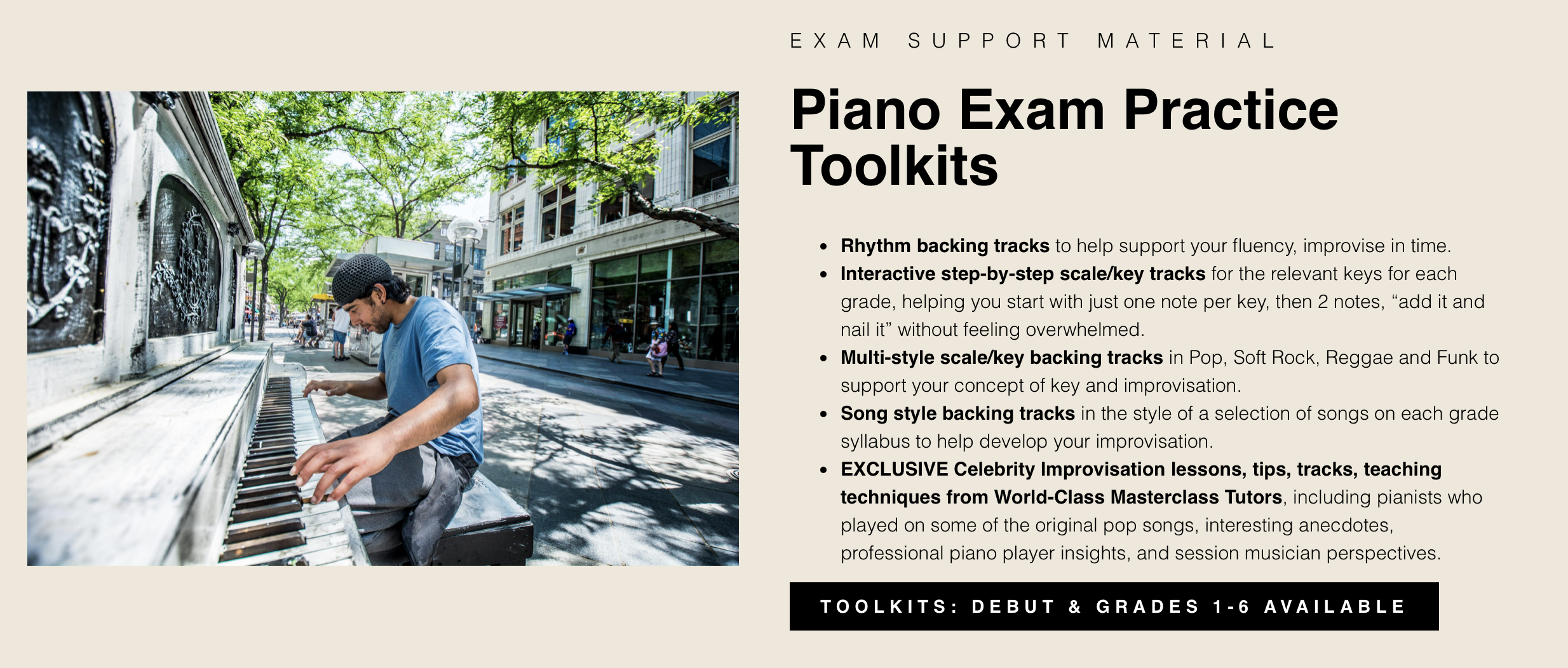New Piano Exams from The Maestro Online!
Kate Rounding speaks with Dr Robin Harrison, the founder of The Maestro Online, to learn more about the platform's latest addition: an online piano exam suite that offers new routes to accreditation
Kate: Can you tell me about the background of Maestro Online
Robin: Yes! The Maestro Online is a music education platform that evolved to respond to the needs of people who learn by ear, want to improvise, or just don't want to always stick to notation! It provides a structured approach to support their technique, creativity and ability to improvise. These courses give you a route to being able to play by ear, they are there to support people who need a bit more creativity and want to learn to improvise. I have introduced structured approaches and a learning management platform that allows you to see your progress. Each course has tutorial videos and a series of tasks to complete, and once you have completed them, you can download a certificate. The pedagogy and the reward for each step is embedded – and let's face it, we like 'gamification' and feeling we have achieved something and a measurement of our success!
Kate: What is your background as a musician and educator?
Robin: I was classically trained, and I studied at the RNCM. I then completed my teacher training and earned a PhD before teaching at the RNCM. A few years later, I took a job teaching at an international school in Cairo, and this is when I learnt to improvise. At a teacher's BBQ, I heard a musician blending Avril Lavigne, Beatles, Mozart, and Bach seamlessly. I was intrigued as I had always had to stick to the dots! I asked him to teach me, and I studied with him for four years, during which time he would not let me have sheet music, which was so scary initially! This process really freed me up, and I could even play classical music better thanks to his approach.
When I got back to the UK, I began combining this approach in my teaching, and eventually, I came up with the concept of the platform. To take it to the next level, I wanted some major artists, people who are at the top of their game. This transformed the platform; it went from my own philosophy to engaging lots of people, and we have some great names! For example we have Master Classes with Marcus Brown (Madonna, Mel C, James Morrison) and Lady Marsha Morrison (Stormzy). On the classical side, we have Sietze De Vries from Holland, Stephane Mottoul (Court organist in Switzerland), and film composers such as Patrick Cassidy, who worked with Hans Zimmer. There are more and new content is always developing.
Kate: You have recently launched a new popular piano performance exam suite. Tell me a bit about that.
Robin: That came from working with all these experienced musicians. It's interesting that at this level, people never perform a piece the same way twice, especially in rock and pop. Session musicians use the chords, elaborating and embellishing them differently each time. Marcus Brown said that you can't play it the same every night when you are on tour, or you would just switch off. Someone in the band would play a little differently, and you spark off each other to keep it interesting!
The idea was to set up pop piano exams so that people who want to play popular material could be accredited. Someone who plays classically but also likes pop music could also do a grade, or someone who wanted to gain some extra UCAS points as a musician in a different area could do some pop piano. It is also designed to meet the needs of different learners. For learners who want to read notation, it is there, but some people can't or don't want to read notation, and that is totally fine. The exam is based on your performance of a song at the right level. This is a new route to OFQUAL-accredited recognition for their musicianship. There are 100’s of songs to choose from, songs by Taylor Swift, Lewis Capaldi, Harry Styles, David Guetta and many more!
Kate: So progress is recognised through accreditation without the need to read notation?
Robin: Yes, we are also trying to help with other aspects. For instance you will receive results in just 1 to 5 working days, and you can take the exams from home, all of which can reduce anxiety. You can also upload your songs one by one to get your best performance. We are one of the most affordable exam options out there. This is so important, not just in the UK but globally. It's also about supporting people to become unique artists who are encouraged to be creative. You can pass the exam simply by reading the dots and playing well if you do read notation, but to get higher marks, we want people to have a bit of creativity through improvisation. Music should be creative, not just technical.
Kate: Do the exams extend to grade 8, and what might you have to do to get a pass, merit or distinction.?
Robin: Yes, they are from debut to grade 8, with UCAS points at grades 6, 7 and 8. We are marking from a performance perspective, so we are looking at timing and rhythm, technical control and musicality (or musicianship), performance communication and how you engage with your audience. There are 5 marks available for technical control, timing and rhythm, musicality and performance; 5 in each will give you the top mark or distinction!
So, for example, at the debut level, we encourage people to have a go at creating a short intro or outro section; as you progress, say at grade 5, you may add a few more blues notes or embellish the tune. In grade 6, we might ask you to restyle a section, for example, in a Latin style. In grades 7 and 8, you might stylise a whole verse and chorus and add a solo. Those elements of personalisation, improvisation, and stylisation will all gain you some extra marks.
Kate: How did you choose the repertoire, and how was it approved for the exam suite?
Robin: There was an enormous amount of research. I interviewed hundreds of people of all ages about their favourite songs, finding songs with solo piano that were iconic for different generations. I then researched sheet music at the right level for each grade for those who read notation. This led to a huge list! The next stage was to liaise with Ofqual. The accreditation took nearly a full year. There was a lot of discussion around which grade each piece was, what the grade criteria were, and how this was marked. There was a huge amount of work until we got to the final syllabus. Ofqual is there to regulate things and ensure that things are the same standard across every exam board. It was very demanding, to be honest!
Kate: What resources are available to support students through the exams?
Robin: I've called the resources' Practice Toolkits', and they come with a variety of supportive exercises to help you learn and develop confidence in improvising. There are backing tracks in various styles for you to practice scales with, which helps you understand the key that the song is in. One of the tools I call the 'add it and nail it' method, where you start improvising with one note of the scale and then add another, one by one, until you are confident in that key. There are drum tracks in different styles and tempos to help you with your timing. It can be helpful to play against a drum track, as you have the divisions of the beat, plus the fills give you a sense of phrasing. There are also backing tracks that can help you feel like you are playing with others; this is important for piano players as they can be quite isolated. In the real world, you often play in a band or in a studio with other musicians, and this helps you get used to it. Bands don't stop if you hit a wrong note, and even the most experienced musicians make mistakes; we need to build that fluency and not get flustered when something doesn't quite go our way!
Kate: Where do I find out about the online exams?
Go to www.the-maestro-online.com, and you will find the piano exam section, the syllabus, the song list, links to the practice toolkits and the link to take the exam. Once you have paid for your exam, you have three months to take the exam; you can also take a mock exam if you want. There is AI that will check your internet connection and camera quality. Once you submit your performances, you will have the results within one to five working days.




